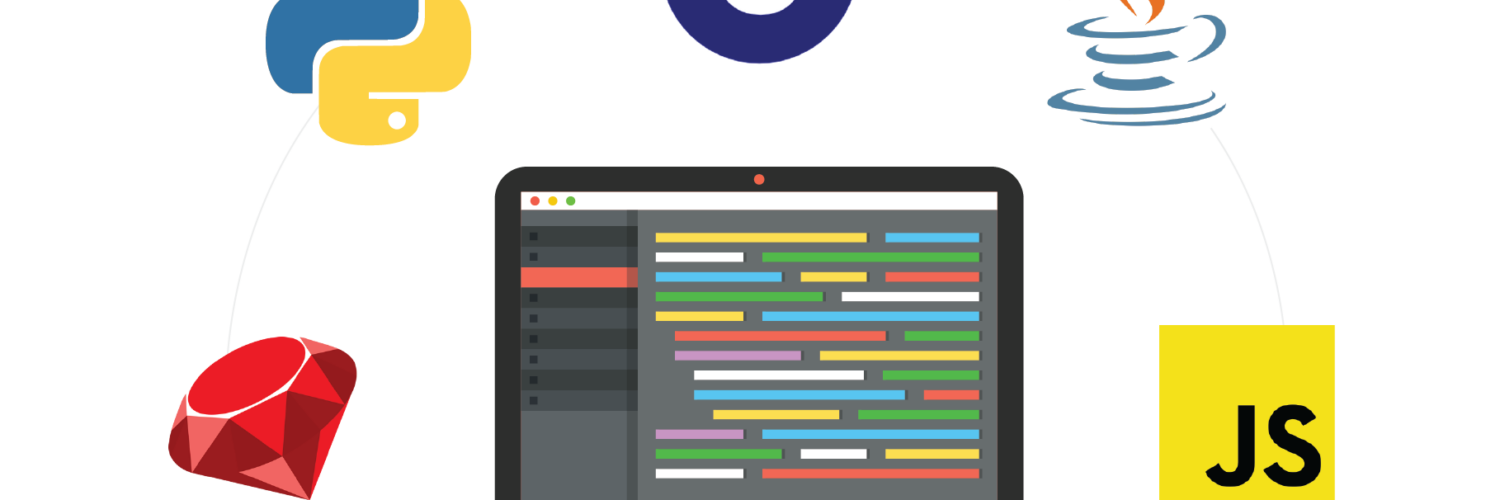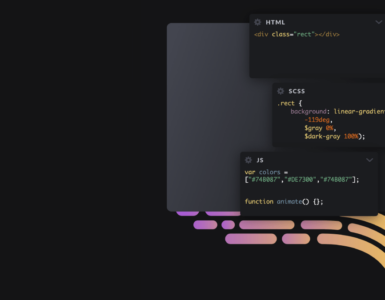Having a thorough grasp of programming languages is becoming more and more crucial for a range of professional pathways in the modern digital world. Knowing how to code can provide you an advantage on the job market and create new prospects for career progression, whether you want to work as a software developer, data scientist, or even a marketing.
Choosing which computer language to learn initially might be difficult, though, because there are so many options available. We’ll give an overview of some of the top programming languages in this post and go through some of its salient characteristics and applications.
Python
Popular high-level programming language Python is renowned for its simplicity, readability, and versatility. It has a sizable and vibrant developer community and is extensively used in scientific computing, data analysis, and artificial intelligence.
Some key features of Python include:
- Dynamically-typed: In Python, you don’t have to specify the data type of a variable when you declare it. This makes it easy to write code quickly, but can also make it harder to catch errors.
- Strong support for object-oriented programming: Python has a strong emphasis on object-oriented programming (OOP), which is a programming paradigm that organizes code around objects rather than actions. This makes it easier to manage and reuse code, and can make it easier to scale applications.
- Large standard library: Python comes with a large standard library that includes many useful tools and modules for a variety of tasks, including interacting with the operating system, parsing and manipulating data, and more.
Some common use cases for Python include:
- Web development: Python has a number of web frameworks, such as Django and Flask, that make it easy to build and deploy web applications.
- Data analysis and visualization: Python has a number of powerful libraries, such as NumPy and Pandas, that are commonly used for data manipulation and analysis. It also has libraries like Matplotlib and Seaborn that can be used for data visualization.
- Machine learning: Python has a number of libraries, such as scikit-learn and TensorFlow, that are widely used for machine learning tasks.
Java
Popular general-purpose programming language Java is used in a variety of applications, including web servers, mobile apps, and scientific software. Because Java code can be deployed on any device with a Java Virtual Machine (JVM), regardless of the underlying hardware or operating system, it is well known for its “write once, run anywhere” (WORA) capabilities.
Some key features of Java include:
- Object-oriented: Like Python, Java is an object-oriented programming language, which means it organizes code around objects rather than actions.
- Static typing: In Java, you must specify the data type of a variable when you declare it. This can make it easier to catch errors at compile-time, but can also make the code more verbose.
- Large developer community: Java has a large and active developer community, with many libraries and frameworks available to help developers build applications quickly and efficiently.
Some common use cases for Java include:
- Android app development: Java is the primary language used for Android app development, and the Android operating system itself is written in Java.
- Web development: Java has a number of web frameworks, such as Spring and Hibernate, that are commonly used for building web applications.
- Enterprise applications: Java is often used for building enterprise-level applications, such as customer relationship management systems and supply chain management systems, due to its scalability and reliability.
C++
A high-performance programming language called C++ is frequently used to create intricate, large-scale systems and applications. It is renowned for its adaptability and effectiveness because it gives developers low-level control over how their code is executed.
Some key features of C++ include:
- Object-oriented: Like Java and Python, C++ is an object-oriented programming language.
- Low-level control: C++ allows developers to have more control over how their code is executed, as it allows them to manipulate memory and hardware resources directly. This makes it a good choice for tasks that require a high level of performance, such as video game development and scientific simulations.
- Compatibility with C: C++ is a superset of the C programming language, which means that it includes all of the features of C and more. This means that C++ code can be used in C programs, and C code can be used in C++ programs.
Some common use cases for C++ include:
- Video game development: C++ is often used for building video games due to its performance and low-level control.
- Operating systems: C++ is often used for building operating systems and other low-level systems due to its performance and control over hardware resources.
- High-performance applications: C++ is often used for building scientific simulations and other high-performance applications due to its efficiency and flexibility.
C#
Microsoft created the contemporary, object-oriented programming language C#. It is used to create a range of applications, including games, mobile apps, and Windows desktop apps.
Some key features of C# include:
- Object-oriented: Like Java, C++, and Python, C# is an object-oriented programming language.
- Strongly-typed: In C#, you must specify the data type of a variable when you declare it. This can make it easier to catch errors at compile-time, but can also make the code more verbose.
- Integrated with the .NET framework: C# is integrated with the .NET framework, which is a collection of libraries and tools for building applications on the Windows platform.
Some common use cases for C# include:
- Windows app development: C# is often used for building Windows desktop applications and games due to its integration with the .NET framework.
- Mobile app development: C# can be used for building mobile apps using the Xamarin framework, which allows developers to create native apps for iOS, Android, and Windows using a single codebase.
- Web development: C# can be used for building web applications using the ASP.NET framework.
JavaScript
Popular and simple programming language JavaScript is mostly used to create web pages and web apps. It is renowned for its interactive features and capacity to work with the DOM (Document Object Model), which makes up a web page’s structure.
Some key features of JavaScript include:
- Dynamically-typed: Like Python, JavaScript is a dynamically-typed language, which means you don’t have to specify the data type of a variable when you declare it.
- Used for front-end and back-end development: JavaScript is commonly used for building both the front-end (client-side) and back-end (server-side) of web applications.
- Large developer community: JavaScript has a large and active developer community, with many libraries and frameworks available to help developers build applications quickly and efficiently.
Some common use cases for JavaScript include:
- Web development: JavaScript is used for building the front-end of web applications and for adding interactivity to web pages. It can also be used for building the back-end of web applications using frameworks like Node.js.
- Mobile app development: JavaScript can be used for building mobile apps using frameworks like React Native, which allows developers to create native apps for iOS and Android using a single codebase.
- Game development: JavaScript can be used for building browser-based games using libraries like Phaser or Pixi.js.
Swift
Apple created Swift, a cutting-edge general-purpose programming language. Applications for iOS, iPadOS, macOS, watchOS, and tvOS may all be created using it.
Some key features of Swift include:
- Object-oriented: Like Java, C++, C#, and Python, Swift is an object-oriented programming language.
- Strongly-typed: In Swift, you must specify the data type of a variable when you declare it. This can make it easier to catch errors at compile-time, but can also make the code more verbose.
- Safe and expressive: Swift is designed to be a safe and expressive language, with features like type inference and optional safety to help developers write code that is more reliable and easier to understand.
Some common use cases for Swift include:
- iOS and macOS app development: Swift is the primary language used for building apps for Apple’s platforms, including iOS, iPadOS, macOS, watchOS, and tvOS.
- Server-side development: Swift can be used for building server-side applications using frameworks like Vapor or Kitura.
Kotlin
JetBrains created the contemporary statically typed programming language known as Kotlin. It is completely compatible with Java and is frequently employed as an alternative to Java for the development of Android apps.
Some key features of Kotlin include:
- Statically-typed: In Kotlin, you must specify the data type of a variable when you declare it. This can make it easier to catch errors at compile-time, but can also make the code more verbose.
- Interoperable with Java: Kotlin is fully interoperable with Java, which means that you can use Kotlin code in a Java project and vice versa.
- Safe and concise: Kotlin is designed to be a safe and concise language, with features like null safety and type inference to help developers write code that is more reliable and easier to understand.
Some common use cases for Kotlin include:
- Android app development: Kotlin is often used as an alternative to Java for building Android apps due to its interoperability with Java and its safety and conciseness.
- Server-side development: Kotlin can be used for building server-side applications using frameworks like Ktor or Spring Boot.
Conclusion: Choosing the right programming language for you
There are numerous programming languages available, each with unique advantages and applications. Your objectives and the things you want to build will determine the ideal language for you. You may want to think about learning JavaScript or Python if you’re interested in creating online apps, for instance. You can think about learning Swift or Kotlin if you’re interested in creating mobile applications. Choosing a language that you enjoy learning and that is compatible with your goals is ultimately the most crucial step because it will make the learning process more fulfilling.



Add comment